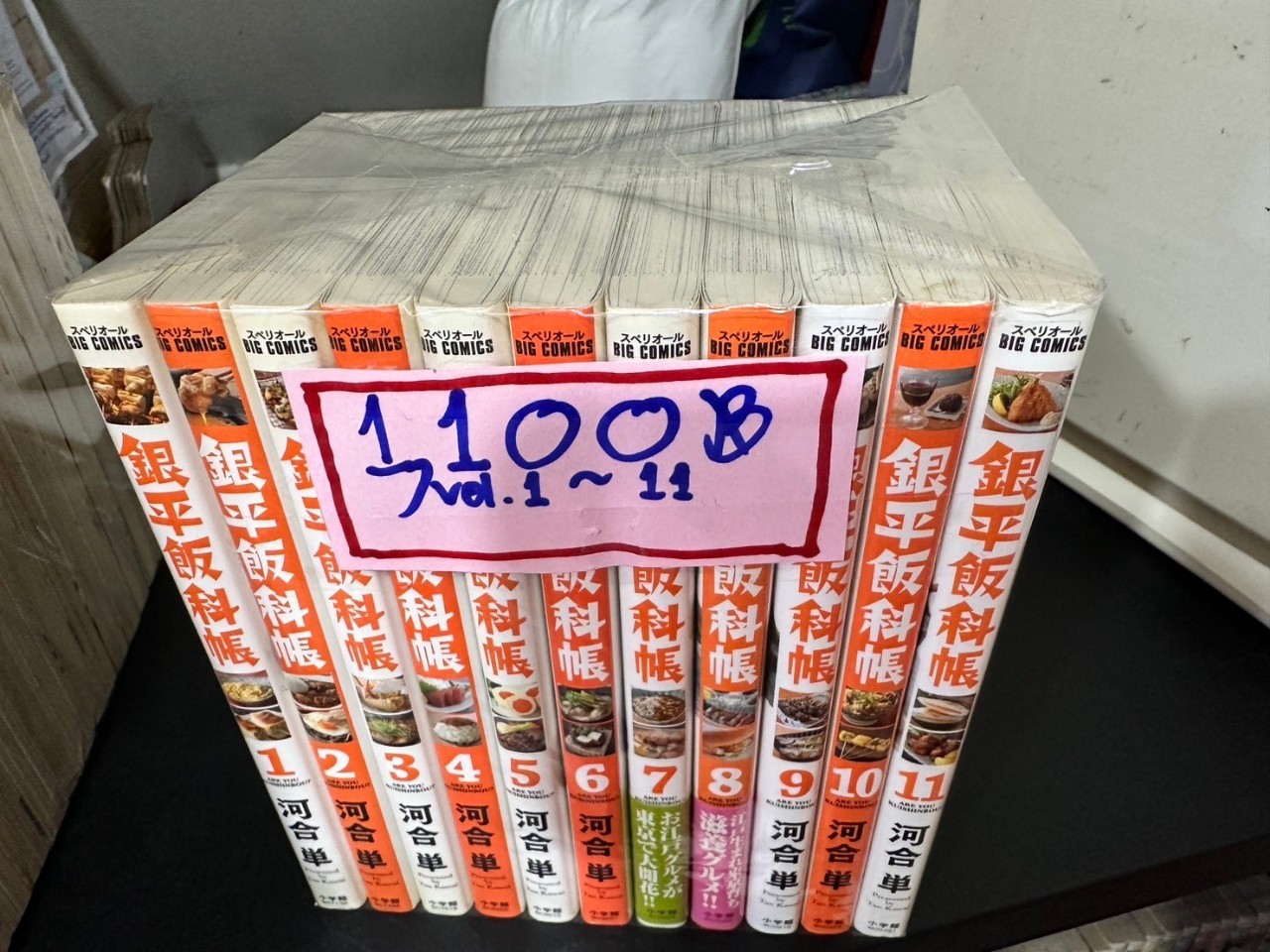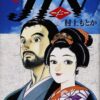No products in the cart.
[Comic Set] 銀平飯科帳 Ginpei Hankachou 1-11 (11 เล่มจบ)
1,100 ฿
Publisher: Shogakukan (2015/7/30)
Release Date: 2015/7/30
Language: Japanese
ISBN-10: 4091871380
ISBN-13: 978-4091871381
Location : 3FL
Category: Comic Set
武藤銀次が東京の神田で営む居酒屋は、幼馴染の平賀と葉瑠以外に常連客がなく、閑古鳥が鳴いていた。銀次はある日通りかかった馬喰町の孤穴稲荷に参拝し、「楽して儲かりますように」などと祈願した。すると一天にわかに掻き曇り、激しい雷雨に見舞われる。拝殿内に避難したが、雷鳴に驚いて中にあった井戸(と言っても水はなく、大人なら底に立つと顔が出る程度の深さ)に落ちてしまう。出てみると、そこは西暦1820年当時(約200年前)の江戸だった。
馬喰町の住人達から不法入国者(南蛮人)と疑われ逃走。その最中焼き鳥の匂いに誘われて本所菊川の長谷川邸に無断で立ち入り、焼き鳥を盗み食いしたところを平蔵に取押えられる。平蔵の兄主税(幕府筆頭膳奉行)は、祖父宣以(鬼平)が作った「飯科帳」(江戸市中の料理屋の番付表)の改定作業を将軍から直々に命じられ困っていたため、盗み食いの罪を許す代わりに「飯科帳」作りに協力して欲しいと銀次に依頼(脅迫)し、銀次と平蔵の江戸市中食べ歩き紀行「銀平飯科帳」が始まった。
The izakaya run by Muto Ginji in Kanda, Tokyo, had no regular customers other than his childhood friends Hiraga and Haru, and was deserted. One day, Ginji passed by Koana Inari Shrine in Bakuro-cho and prayed, “May I make money easily.” Then, the sky suddenly became cloudy and a severe thunderstorm hit. He took refuge in the worship hall, but was startled by the thunder and fell into a well inside (although there was no water, and it was deep enough that an adult’s face would be exposed if they stood at the bottom). When he emerged, he found himself in Edo in 1820 (about 200 years ago).
He was suspected of being an illegal immigrant (a southern barbarian) by the residents of Bakuro-cho and fled. During this time, he was attracted by the smell of yakitori and entered the Hasegawa residence in Honjo Kikugawa without permission, where he stole some yakitori and was caught by Heizō. Heizo’s older brother, Nensho (the shogunate’s chief food magistrate), was in trouble as he had been ordered directly by the shogun to revise the “Ishikacho” (a ranking list of restaurants in Edo) created by his grandfather, Nobuyoshi (Onihei).So he asked (threatened) Ginji to help him create the “Ishikacho” in exchange for forgiving his crime of stealing food, and so began “Ginpei Ishikacho,” a travelogue of Ginji and Heizo’s food-hunting adventures around Edo.
![[Comic Set] 銀平飯科帳 Ginpei Hankachou 1-11 (11 เล่มจบ)](https://keybookonline.com/wp-content/uploads/2024/10/71mq-z-rZEL._AC_UF10001000_QL80_.jpg)



![[Comic Set] (是-ZE-) เทพกระดาษ Yuki Shimizu Yaoi 1-11 (จบ)](https://keybookonline.com/wp-content/uploads/2023/11/71XFFN2utIL._AC_UF10001000_QL80_-600x500.jpg)
![[Comic Set] 元ヤン 1-15 จบ](https://keybookonline.com/wp-content/uploads/2023/11/51KsMOvczHL.jpg)
![[Comic Set] 禁断~秘密の花園~ The Secret Garden Kindan: Himitsu No Hanazono: Kanzenban ซีรี่ย์เล่มเดียวจบ 5 เล่ม](https://keybookonline.com/wp-content/uploads/2023/11/091380520000d0000000-506x500.jpg)
![[Comic Set] RIDEX (ライデックス) RIDEX 1-12](https://keybookonline.com/wp-content/uploads/2023/11/68742-99.jpg)
![[Comic Set] 初恋モンスター MONSTER จู่โจมรัก 1-8 จบ](https://keybookonline.com/wp-content/uploads/2023/11/51j0fsub6CL.jpg)
![[Comic Set] プライド Pride 1-12 จบ](https://keybookonline.com/wp-content/uploads/2023/11/BT000017230600100101.jpg)
![[Comic Set] スイート☆ミッション SWEET ☆ MISSION สวีท ☆ มิชชั่น 1-11 จบ](https://keybookonline.com/wp-content/uploads/2023/11/X-600x500.jpg)
